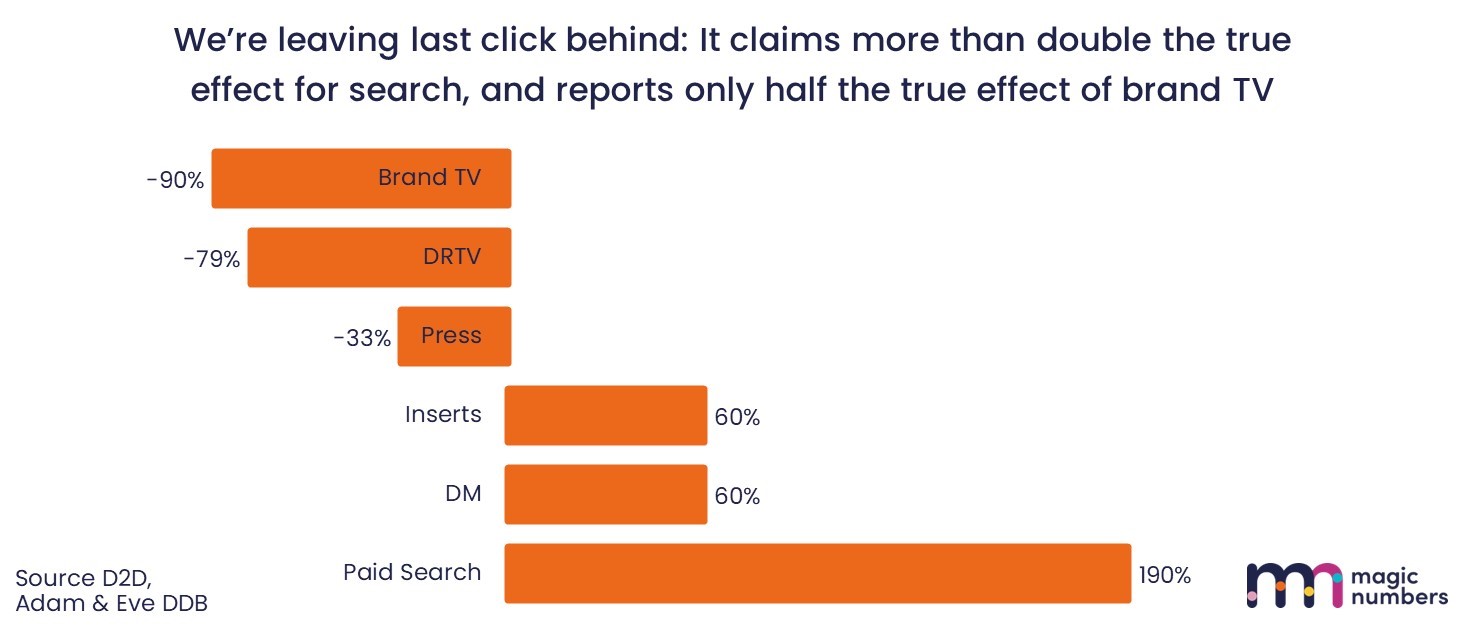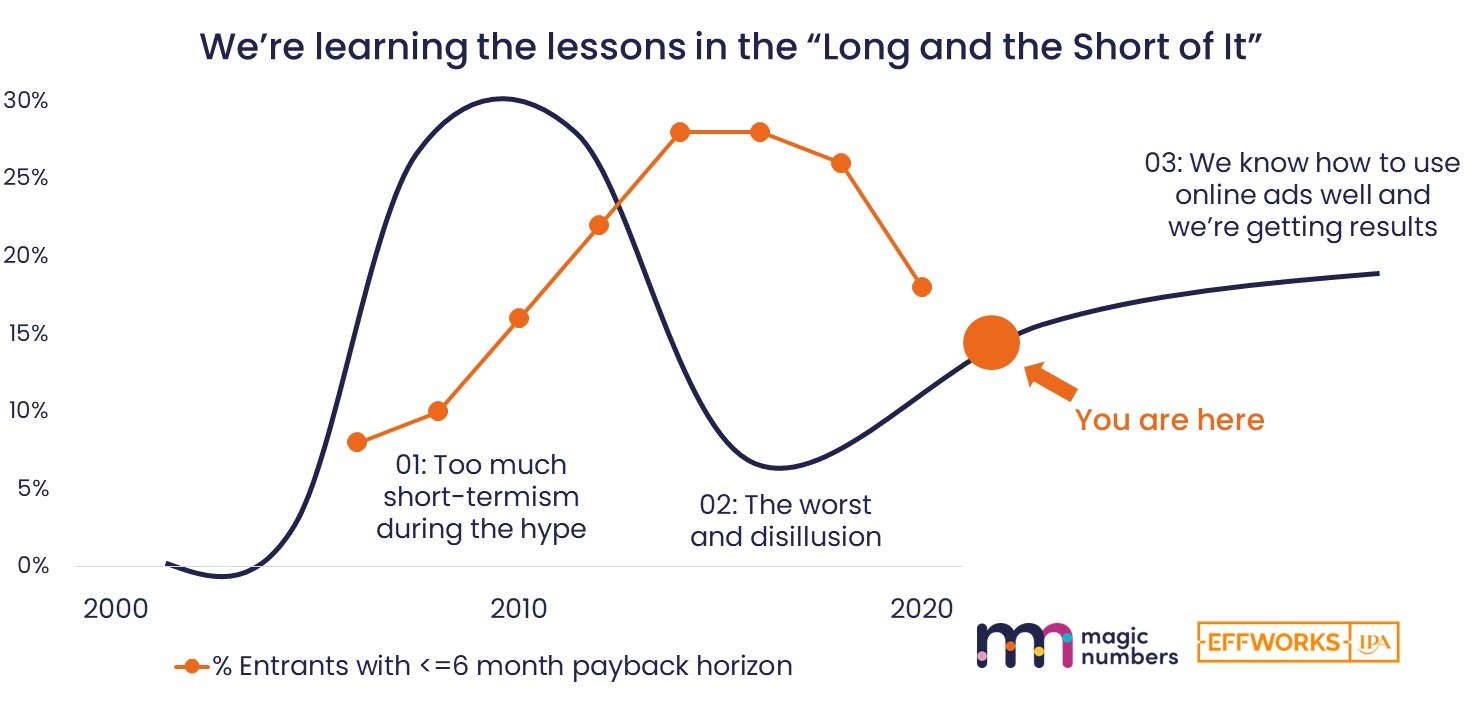You’d think that marketing people would be wise to it, given all we know about how to get people to buy stuff. But no, we’re just like everyone else, we get excited by shiny new things. Including shiny new ways of communicating with potential customers.
We beat ourselves up over it. Sitting in conferences getting told off by speakers that point to the mistakes we made and the previous ways of doing things we turned away from even though they worked.
But perhaps we should give ourselves a break. Afterall, excitement for the new is why progress happens.
And the evidence now shows that we were right to pile into online advertising. That our enthusiasm for it has bought us to a better place.
Because although effectiveness was in question when online ads were new, there’s now solid evidence that returns are on the up and that it’s online advertising leading the charge.
Innovations “trick” us into bringing them to life
Time after time, human beings invest more into early-stage innovations than is rational given how useful they are.
We spent billions on internet tech in the 1990s, even though, at the time, it was slow, pixellated, and useless for commerce. And, in the 2010s, there was a similar splurge on blockchain, even though to this day, it’s largely impractical for many uses.
The Gartner hype cycle pictured below describes why people do it, and what happens next.
In the early days people’s expectations are sky high, they think the new tech is going to be amazing. But the reality is disappointing, and it’s only after time has passed, with experiments, learning, and further innovation, that an equilibrium can be reached.
Gartner call the final stage the “plateau of productivity”. It’s where expectations match the reality, and the innovation is mature and working well.
We’ve been through it all with online ads over the past 20 years. The enthusiasm, the excitement, and huge amounts of investment into the tech. Then the disappointment and worry, and those conference speeches and articles saying things were better before.






